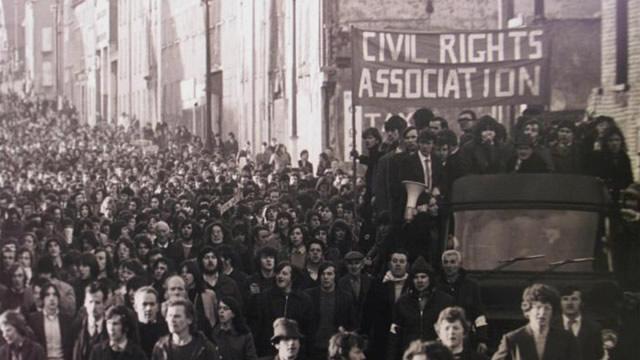
The collapse of the trial against two former paratroopers for the murder of Official IRA man Joe McCann in 1972 may have a knock-on impact on other pending legacy trials but should not affect the prosecution over Bloody Sunday a solicitor has said.
The case against Soldiers A and C was thrown out this week after a judge ruled statements given to the Historical Enquiries Team (HET) by the two men were inadmissible in evidence.
The PPS is to review its evidence in several cases involving veterans following the collapse of the McCann murder trial.
If any cases involve HET evidence, which was ruled inadmissible in the McCann case, prosecutors will consider that material in light of the ruling by the trial judge.
There are currently three cases involving former soldiers before the courts.
The case of Soldier F, facing trial for two counts of murder linked to Bloody Sunday, remains the most high-profile.
He is charged with the killings of James Wray (22) and William McKinney (27).
The former paratrooper, now in his 60s, also faces five counts of attempted murder.
Four relate to Joseph Friel, Michael Quinn, Joe Mahon and Patrick O’Donnell.
The fifth relates to persons unknown.
Ciaran Shiels of Madden & Finucane Solicitors, who represents the Bloody Sunday families, said while the collapse of the McCann case was a matter of serious concern for the relatives, the prosecution over the massacre should not be affected by this week’s ruling.
Inadmissible statements were a key factor in the PPS decision not to prosecute other soldiers present in Derry on the day.
“The PPS has already decided that statements by paratroopers to the Royal Military Police in 1972 were not admissible in deciding on prosecutions arising from the events on Bloody Sunday,” he said.
“We contend that their failure to do so is unlawful and the High Court, with the benefit of very full written legal submissions on the matter, granted five Bloody Sunday relatives leave to apply for judicial review of these decisions on the papers.
“The case is listed before a full Divisional Court of the High Court in September 2021 for five days of oral submissions.
“The ongoing prosecution of Soldier F, currently at committal stage, is not dependent upon the admissibility of RMP statements and is not affected by this week’s judgment at Belfast Crown Court.”
Also awaiting trial is former soldier Denis Hutchings, charged with the attempted murder of Co Tyrone man John Pat Cunningham in 1974.
The 27-year-old, who had a mental age of six, was shot in the back as he ran away from an Army patrol in Benburb.
Mr Hutchings, who was in command of the unit, is also accused of attempted grievous bodily harm.
Last month lawyers acting for Mr Hutchings said they were seeking to take his case to the European Court of Human Rights, claiming his prosecution was “discriminatory and vexatious”.
In a letter to the Secretary of State, legal representatives for the 79-year-old called on Brandon Lewis to allow him to approach the Strasbourg court over alleged discrimination against veterans who served here.
Mr Hutchings is due to go on trial in October.
In January last year the PPS announced that David Jonathan Holden, a former Grenadier Guardsman, would stand trial accused of the manslaughter of a Catholic at an Army checkpoint on the border in February 1988.
Aidan McAnespie (23) was hit by one of three bullets fired from a machine-gun in Aughnacloy, Co Tyrone. He was on his way to a Gaelic football match.
Mr Holden, who was 18 years old at the time of the incident had previously been charged with manslaughter, but this was dropped in 1990.
The PPS reviewed that decision in 2016 following a request by then Attorney General John Larkin.
The Belfast Telegraph understands there are three other cases involving former soldiers currently under consideration by the PPS.
Johnny Mercer MP, who was in Belfast this week to support Soldiers A and C, has called on the Government to introduce legislation to end prosecutions of veterans who served here.
Mr Mercer said: “The Prime Minister has made very clear promises on legislation to end the relentless pursuit of those who served their country in Northern Ireland. It is time to deliver on that.”
Andree Murphy from Relatives for Justice said the collapse of the McCann case demonstrated the reasons why the HET failed, claiming “it acted deliberately ineffectively” in relation to state killings.
“What we see is the necessity for effective human rights-compliant investigations as per the Historical Investigations Unit contained in the Stormont House Agreement,” she added.
“For wider society, this lack of rigour and treatment of victims should be a cause of shame. Instead, we see victims blamed and punished with repeatedly flawed processes which add insult to egregious injury.”


You must be logged in to post a comment.